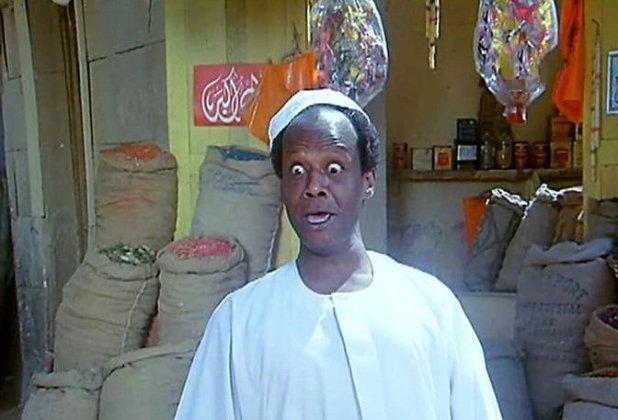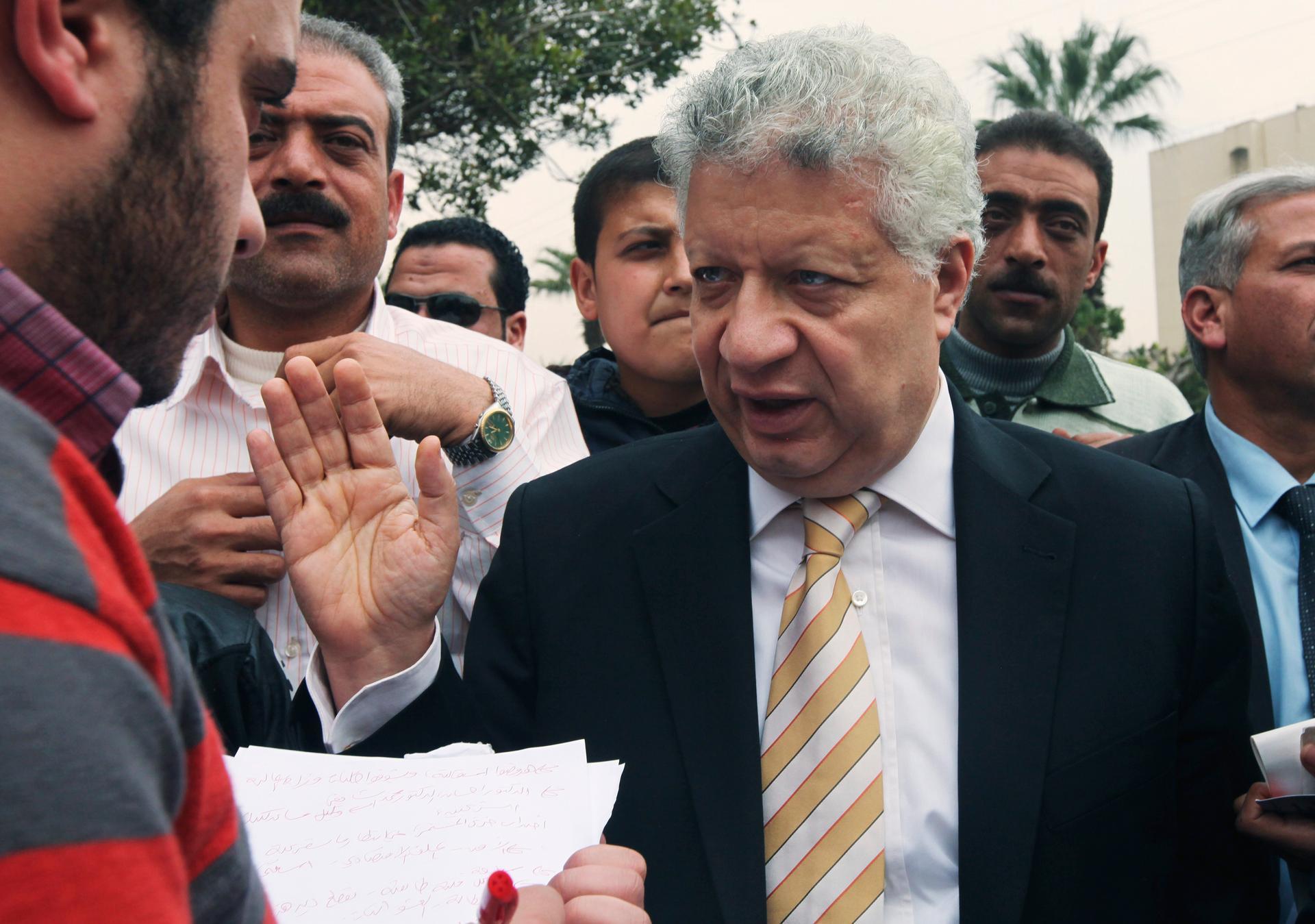Mortada Mansour in 2012 after he announced his candidacy for Egyptian president.
Al-Aashira Masaa is a popular daily Egyptian call-in show on satellite TV that has viewers around the world. And on July 3, many of them were shocked to hear Mortada Mansour, head of Zamalek, one of Egypt’s top soccer clubs, calling in and slamming the show host for having soccer player Ahmed Almerghani on as one of his guests.
Almerghani sat quietly as Mansour yelled at the host: “Why do you have this boy on?! He doesn’t deserve time on your show! He wasn’t raised right! He’s a traitor!”
A "traitor," Mansour says, because Almerghani criticized Egyptian President Sisi for his handling of violence in the Sinai the previous week.
Then, the rant got uglier. “Why do you have this servant on, this doorman?” Mansour yelled.
That was a not-so-veiled reference to Almerghani’s race. He’s a Nubian, from southern Egypt. Nubians are Egypt’s darker-skinned, marginalized minority. They’ve traditionally held lower-status, lower-paid jobs — maids, servants, doormen. Mansour seemed to be saying that because Almerghani is Nubian, he wasn’t worthy of being heard.
That kind of racism is not new, and, in Egypt, it’s pervasive, according to a Nubian American musician, Mosno Al-Moseeki. “It’s to the point where it’s almost accepted, which is kind of painful to say.
Al-Moseeki is based in Baltimore, but he lived in Egypt for six years and he says he regularly endured racist comments. He remembers being called "black boy" and being mocked in broken Arabic.
“They’d use [a Nubian] accent, and it’s extremely annoying and disrespectful because not everybody talks like that.”
Arif Gamal, a professor at UC Berkeley’s Center for African Studies says, ever since Nubia was annexed to the rest of Egypt last century, it has been the target of innuendos, derogatory terms and flat out racism.

“It’s always a brown man, always dressed in a turban, in a jellabiya, speak[ing] in broken Arabic, not intelligent, always making stupid comments or he’s being made fun of,” Al-Moseeki says, “It’s always negative. I haven’t seen a single positive Nubian image in the screen, as far as Egyptian movies go.”
It’s like the portrayal of black Americans in the first part of the 20th century, he says, referring to minstrel shows and blackface, which still exists in Egyptian media. These images are so pervasive in mainstream Egypt, many don’t think twice about them. Gamal says many Egyptians don’t see the harm in this type of humor.
"There is no recourse to law or public dialogue, as this would be brushed under the rug like many observations on sexual harassment cases the Egyptian street experiences on a daily basis," he adds.
Mosno Al-Moseeki suggest that because there isn't recourse, Mansour likely felt it was easy to say what he said. "If you see a brown person and they’re doing something bad and you want to insult them, that’s what you call them," he says. "You call them ‘khaddam’ — a servant — or you call them a doorman.”
After Mansour’s call-in comments on live TV, though, something unusual happened. The videowent viral, and Nubian, Sudanese and Egyptian social media blew up with the hashtag “support Almerghani" (ادعم_الميرغني). One Nubian advocacy group in Egypt even threatened to sue Mansour for inciting hatred. And in the US, some activists are calling for a boycott of the Zamalek soccer club, and say they are preparing a petition calling for Mansour’s firing.
Mansour, the club owner, has since said "he has nothing against Nubians," and that he’s not afraid of a lawsuit.
Gamal says he’ll be pleasantly surprised if these online protests actually result in any kind of movement. He says there’s never been a major Nubian uprising against marginalization, although there was some outcry after the 1970 building of the Aswan Dam, which caused the flooding of their homeland and their displacement. But protests against racism? No.
Al-Moseeki says he’s not so sure the online reaction means things are really changing in Egypt, but it’s a start. “The fact that they are uprising, letting people know that we won’t stand for this — I think that in itself is a positive thing.”
